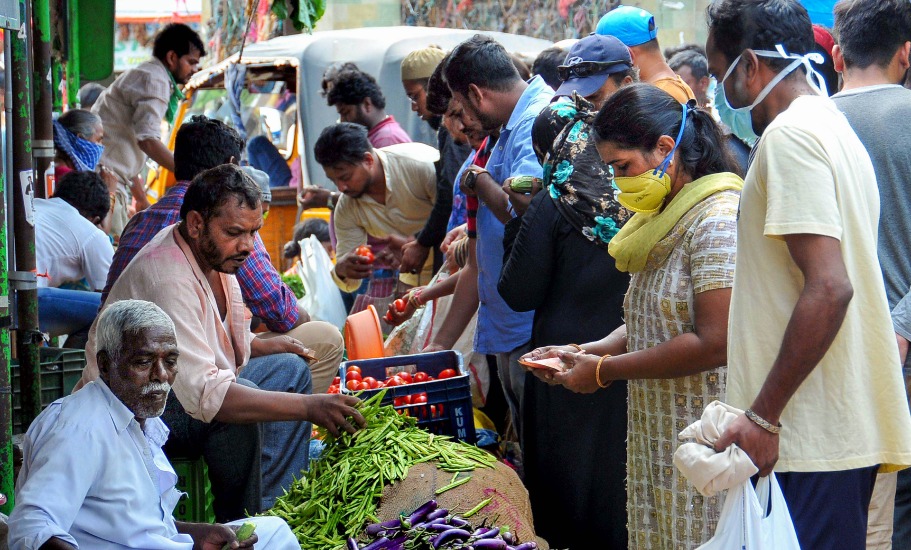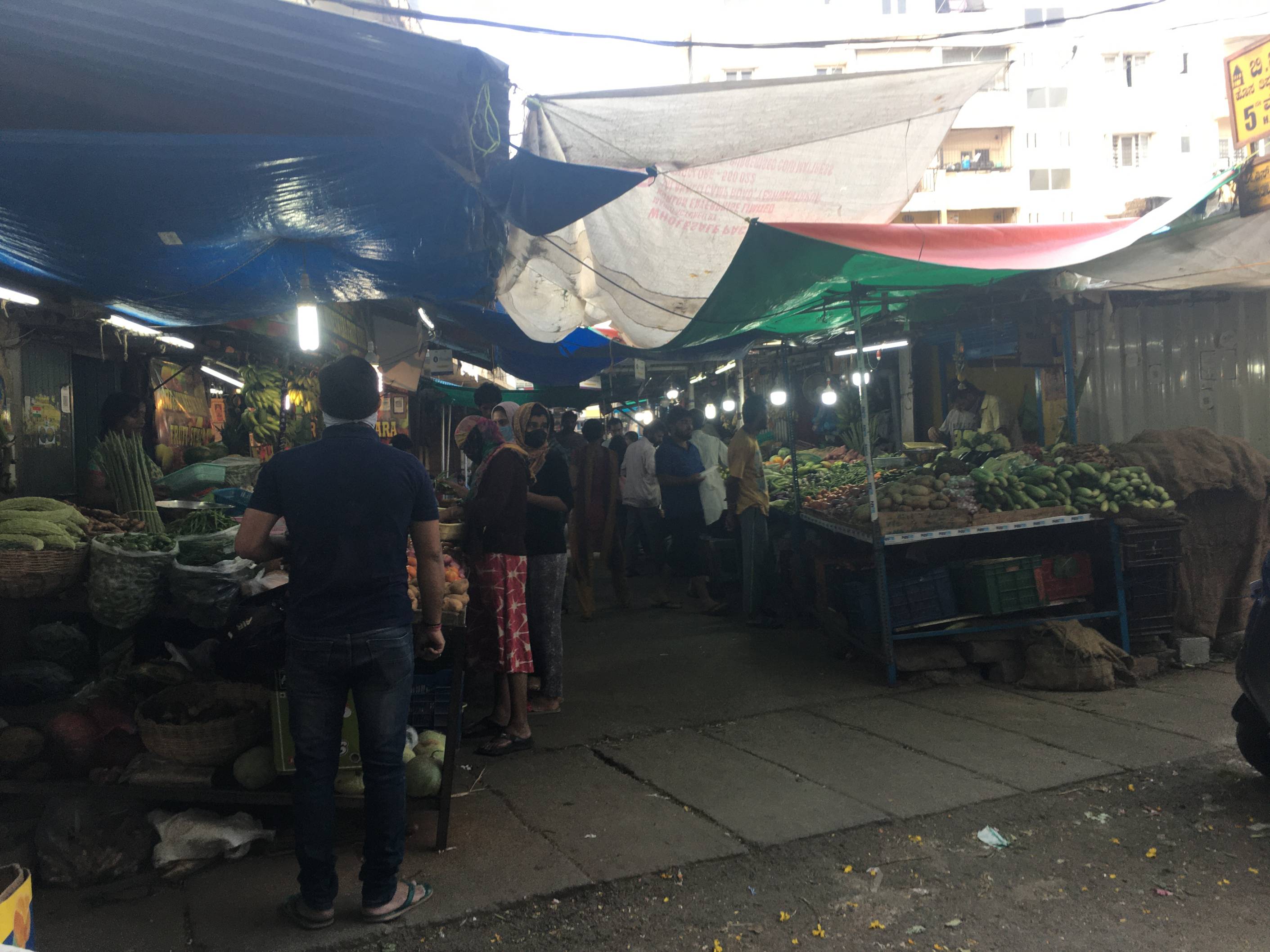
Karnataka witnesses panic buying, Ugadi festival shopping amid lockdown
Police in several parts of Karnataka on Wednesday had to clamp down on the grocery shops and vegetable markets across cities as people disregarded the call for social distancing and gathered in large numbers outside stores.

Police in several parts of Karnataka on Wednesday (March 25) had to clamp down on the grocery shops and vegetable markets across cities as people disregarded the call for social distancing and gathered in large numbers outside stores.
While people worried that essential commodities would run out of stock after Prime Minister Narendra Modi first called for a countrywide shutdown on March 22, his second address to the nation on Monday (March 24) announcing a three-week shutdown fuelled their worries further.
The mere announcement about the shutdown forced people to stop by stores and buy things in bulk.
“First there was a lockdown on Sunday. Then the Karnataka government issued restrictions on Tuesday. And then the Prime Minister announced another three-week long shut down on Wednesday. How can we not panic in such times?” said Sridevi N, a shopper who resorted to panic buying on March 25 outside a supermarket.
Amid requests from the politicians and bureaucrats requesting people not to step out on streets and buy what is essential, panic buying and Ugadi festival shopping in Karnataka led the sales on March 22 and 23. The police found it difficult to control the crowd with a call for social distancing.
Health Minister B Sriramulu and Chief Minister B S Yediyurappa asked people to keep the festival a low affair.
“Considering the lockdown situation, we (politicians) will not be celebrating the festival and we request the same from people. Even if you have to celebrate, do it inside your house and keep it a low affair,” Sriramulu said.
On Tuesday (March 24) morning, the police made rounds in key market areas and dispersed the crowd. However, Modi’s announcement on Monday night again led to uncontrollable chaos on streets.

The city police commissioner issued orders to impose Section 144 — the law that prohibits the gathering of four or more people in public places — in Bengaluru starting midnight of March 23 till March 31.
Several residential associations barred the entry of delivery staff, newspaper and milk vendors, and people had to rely on offline stores for these supplies.
Online delivery too remains disrupted with firms like the Healthy Buddha and BigBasket unable to deliver essentials. “Dear customer, we are unable to do a non-milk essential deliveries tomorrow (March 25) due to restrictions imposed by authorities on the movement of goods…” a BigBasket message to a customer read.
Related news | COVID-19: Health ministry gives guidelines for cremation of bodies
The number of COVID-19 positive cases reported in Karnataka touched 41 on March 24.
“We did not get enough vegetables on Monday and people crowded at shops to pick whatever they can. We had no choice but to wait for the next day to grab the rest. The fear is obvious with so many ‘What if…’ questions in our minds,” said Dharmendra Kumar, a customer at a state-run Horticultural Producers’ Cooperative Marketing and Processing Society (HOPCOMS) shop in Jeevanbhimanagar in Bengaluru.
The HOPCOMS staff at the store said that while the supply remains disrupted, they could still pick up essentials and the demand was almost double when compared to that on normal days.
“On a regular day, we did a business of ₹30,000 – ₹35,000. But with panic buying, we witnessed the sales rise to ₹80,000 – ₹90,000 on March 22 and 23,” Guru Reddy, the HOPCOMS manager at the store said.
Related news | How migrant workers from Bihar may detonate COVID-19 in state
While the prices of vegetable saw a 10%-20% rise, availability of water became a concern for some since the government RO water units at several places were shut and people resorted to buying the 20-litre premium branded water cans at Rs 110 which otherwise costed ₹80. The price of these cans was ₹5 in government units.
Meanwhile, push cart vendors selling fruits too suffered due to less customers. “While I could sell my stock worth Rs 8,000 on Monday, Tuesday the sales remained dull with the police intervention,” Appu N, a push-cart vendor in the city said.
Appu had earned only ₹3,000 till 5 pm on March 24.
CM B S Yediyurappa asked people to stay indoor while assured that essential services would not be hit and that the government took measure to advance the allocation of monthly ration to card holders.


